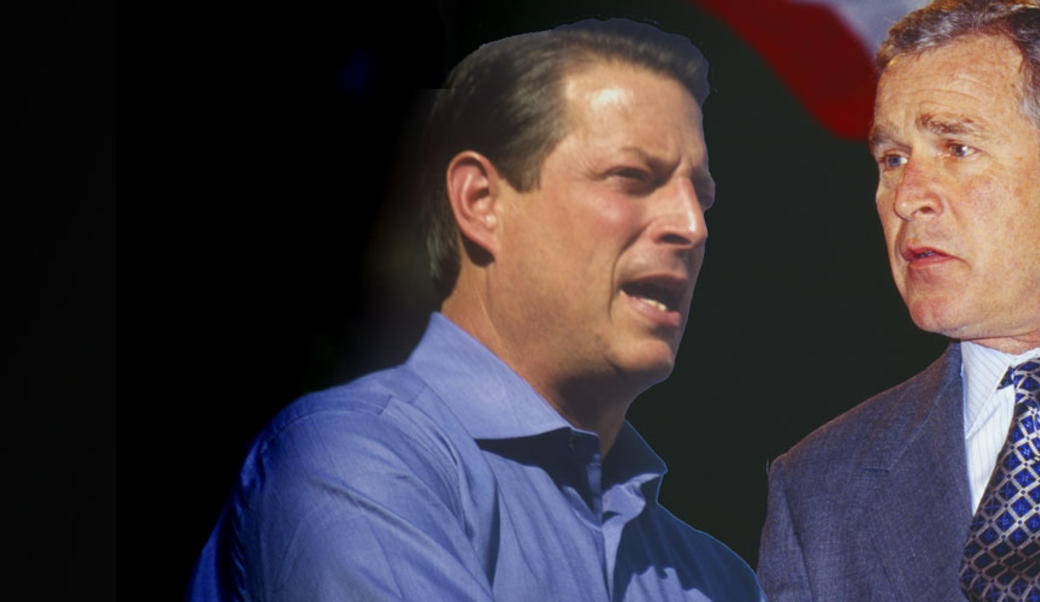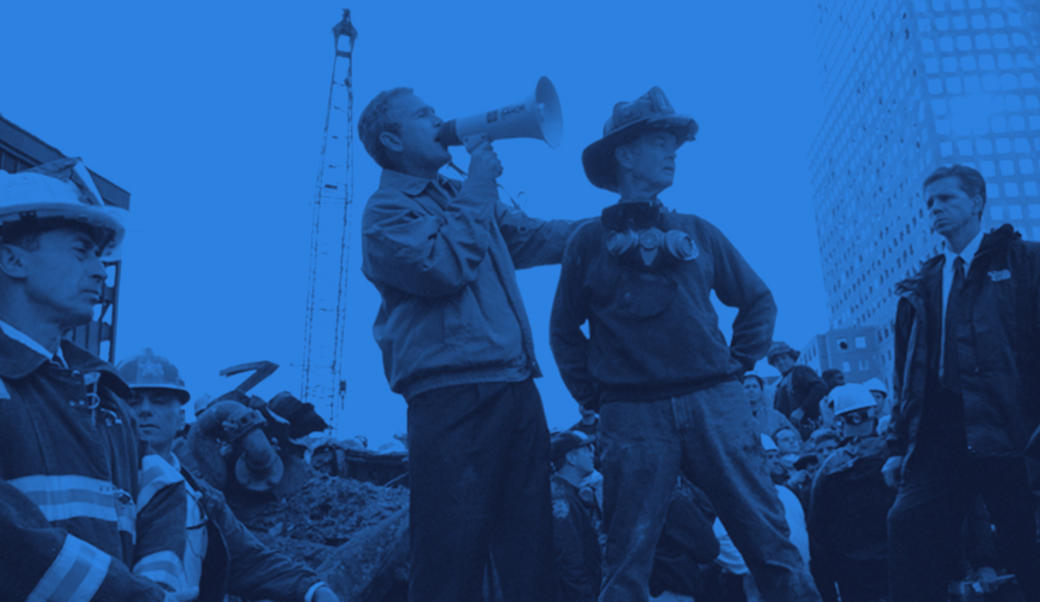George W. Bush: Impact and Legacy
The legacy of George W. Bush remains, much like his 2000 election, a subject of profound controversy, and any truly objective evaluation will likely be years in the future. He entered office as one of only a handful Presidents to lose the nation’s popular vote. The election of 2000 and the Supreme Court case of Bush v. Gore remain two of the most controversial political developments in the last half-century. Some thought that President Bush should begin his term by trying to find common ground and avoid controversy to take some of the edge off the nation’s polarized politics coming out of the 2000 election. Instead, as one of his first actions, President Bush issued an executive order creating the Office of Faith-Based and Community Initiatives, which further alienated some who thought government money should not go to organizations affiliated with churches. Yet he did reach across the aisle on other issues including the No Child Left Behind Act, which was the most impactful change in education policy in a generation.
Within nine months of taking office, President Bush was afforded the chance to unite the nation after the terrorist attacks of September 11, 2001. By most accounts, Bush did a masterful job of speaking for and to the American people. His crisis leadership, including insisting on returning to the White House the night of the attacks instead of holing up in a safe bunker elsewhere, gave the American people confidence that someone was in charge. He became the most popular President in the history of polling, reaching an astounding 90 percent approval rating in the wake of the attacks.
Following an authorization from Congress to eliminate those who perpetrated the attacks of 9/11, Bush ordered an invasion of Afghanistan. The Taliban leadership was driven into the mountains and across the boarders into neighboring countries, including Pakistan. Those early successes, however, turned into the longest war in American history, and the President never was able to achieve the greatest symbolic goal of the effort, the killing or capturing of the mastermind of the attacks, Osama bin Laden; U.S. special forces achieved that goal in 2011 under Bush’s successor, President Barack Obama.
Following the 9/11 attacks, President Bush also presided over a restructuring of the American national security apparatus and the passage of the Patriot Act, which gave the government vast new powers in the effort to combat future acts of terror. Both efforts, especially the Patriot Act, sparked strong divisions within the American people throughout the Bush presidency. In 2002 and into 2003, Bush used the fear of further terrorist attacks to argue for a preemptive war on Saddam Hussein’s Iraq under the rationale that Iraq had weapons of mass destruction. The initial attacks and invasion were extremely successful and popular but in the end no weapons of mass destruction were found anywhere in the country and a strong insurgency arose that resulted in the deaths of more than 4,000 Americans over the next eight years. The war grew increasingly unpopular, and the Democrats used it as a major wedge issue in the 2006 and 2008 elections, in which they first took over Congress and then the White House two years later.
On the domestic front, the Bush presidency scored early successes in gaining passage of large tax reductions and a major reform of the American educational system with the No Child Left Behind Act. The tax cuts, however, were not made permanent, as the President wished, and the bipartisan education reforms proved very controversial with their emphasis on testing and school report cards. The tax cuts were eventually made permanent during budget negotiations in the Obama administration but No Child Left Behind was eventually replaced with a new national education plan in 2015.
After his reelection in 2004, Bush sought major changes to Social Security, arguing a partial privatization plan could insure its solvency. He spent considerable political capital seeking such a change, but his efforts went nowhere in Congress. He also sought major immigration reforms that never materialized. As the tax cuts of 2001 reduced revenue to the government, while spending continued to increase partly due to the expensive wars in Iraq and Afghanistan, the federal government racked up large deficits. Ultimately, those deficits, exacerbated by the financial recession of 2008, helped create a politically impactful insurgency on the political right that went under the banner of the “Tea Party.” The last few months of the Bush presidency were marked by a major crash of the stock market, a controversial bail out of financial institutions and car companies, and a recession that would wipe out millions of jobs and impact the U.S. economy for many years.
The Bush presidency transformed American politics, its economy, and its place in the world, but not in ways that could have been predicted when the governor of Texas declared his candidacy for America’s highest office. As President, Bush became a lightning rod for controversy. His controversial election and policies, especially the war in Iraq, deeply divided the American people. Arguably his greatest moment as President was his initial, heartfelt response to the tragedy of the 9/11 attacks. Soon, however, his administration was overshadowed by the wars in Afghanistan and Iraq. President Bush’s place in U.S. history will be debated and reconsidered for many years to come.


